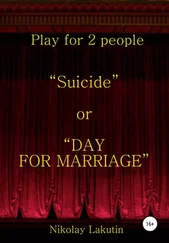“Do you believe words clarify and redeem? Treaties and vows? Alliances? The Geneva Convention? Covenants and promises,” Bob abruptly asked.
“Yes, Bob. I certainly do,” Malcolm replied.
“Words are tadpoles and microscopic worms. They’re eons from vocal chords, grammar and vocabularies. The growls of hyenas are superior. Hyenas come in after the jackals and before the kites. Autumn brings wolves in packs of forty. They’re hungry.” Bob shuddered. His eyes were unfocussed and mottled with a filmy residue like storm clouds. He should definitely be checked for glaucoma.
Bob Lieberman took off his eyeglasses. When he was intensely passionate, he often removed his glasses. When he assumed the guise of an artist, and fueled from within, the external world was a foul and unnecessary distraction. On several occasions, Malcolm had seen Bob pull off his glasses with a wild, awkward flourish, toss them to the floor and step on them.
“I’m not sure anymore. Syllables are ashy pebbles escaping from some hole in your face. They’re transient and insubstantial, peripheral and irrelevant.” Bob paused and evaluated the elephant pictures. “They’re how to fill rooms with ghosts.”
Bob was his closest colleague and, as department chair, he was responsible. Malcolm leaned against the barn wood and sorted through his options.
“Do you know what’s at the end of the universe?” Bob asked.
“No,” Malcolm said. “I do not.”
Bob Lieberman told him the universe was immensely vast but ultimately finite. There’s a river at the end, sliding slow and dense with chunks of gray agate behind the obscure insult of smoke. The last bend of the river unexpectedly ends and there’s a final colossal but graceful trestle, above ridges of sweet William, Geraniums and ferns. Spring is bold and unrepentant and scented with terror.
“We’re always crossing bridges, losing our wallets and waiting for planes. We pretend we know where we’re going. We attend to our watches, springing forward and falling back. We’re aching for lamplight, a pier, an alley or mooring we recognize. We all need a cot for the night.” Bob’s voice was soft.
They considered the end of the universe in silence.
“Your wife stole Rachel’s gold compact and tennis bracelet,” Bob told him. “She takes things whenever she visits.”
“I’ll look into that,” Malcolm offered.
“Rachel said she’s a kleptomaniac,” Bob Lieberman revealed.
Malcolm nodded his head.
“Something’s stirring in the electronic soup. An emerging patois that isn’t codified. We don’t know its morphology or sensibility,” Bob observed. “Or what it wants. Don’t assume progress is benign. I’ll tell you this. It’s birthing itself and it’s savage.”
“I’m following you,” Malcolm said.
Bob Lieberman suddenly leapt from one foot to the other. “When I merge with my persona, I’ll birth royal lepers,” he announced.
Malcolm looked at his watch. “Time to get dressed,” he decided. “There’s a new open mic on campus. Got your car keys? OK, let’s take a short drive.”
Bob Lieberman immediately acquiesced. He clapped his hands and spun around several times in a circle. Professor Malcolm McCarty found a towel on the floor and wrapped it around his waist. Then he drove Bob Lieberman, barefoot and hallucinating, to the Briar State Hospital. They held him in a locked ward for 30 days.
It was never right between them again.
After tea and before dinner, Malcolm McCarty typically spends forty-five minutes on his stair stepper. He listens to the NPR feed from Pittsburgh when the wind is right. He used to find All Things Considered entertaining. Then he realized all things were not considered. Or perhaps all things were considered in all the same ways. He suspects topics are selected alphabetically. Farming in Finland and France. Faulkner. Fire fighters. Freud. Futurism.
“Isn’t there personal evolution?” Patty demanded. She had followed him to his study. She’s still talking about Bob Lieberman. “Do you accept that possibility?”
“I accept entropy and the effort to battle it,” Malcolm answered, no longer engaged.
“Let’s not even go there,” Patricia said to his back. She slammed the door shut.
This is a slogan she repeats with regularity. Let’s not even go there . His students also say this. It’s a global idiom. Verbal contagions suddenly appear. A TV celebrity utters a colloquialism and it becomes the coin of the realm.
Certain moments loiter in the dusk and do not dissipate. That awkward conjunction when he failed to recognize Bob Lieberman is one of a series of misidentifications. He had a similar experience at a conference in China three or four years ago.
Malcolm McCarty was in the hotel restaurant, weighing the nuances of the menu, the possibilities of twice-rinsed bird nest soup, sea moss and eel with river fish, snake and infant pigeon. A woman sat next to him. Her tangy metallic perfume was an unexpected intrusion and he recoiled. The scent permeated her skin. He thought of rancid cooking oil rising from woks in hundreds of millions of muddy alleys. Her overly painted mouth was the red of a degraded calligraphy rendered in that so-called Shanghai coast prosperity. The encrusted lips parted and he was startled to hear Patty’s voice.
Patricia’s hair had been darkened in the hotel salon and festooned with pearls. They protruded from her skull on shiny black sticks. She wore an inordinately red silk dragon scarf around her neck. An odd whitish powder was lacquered into the crow’s feet around her eyes. It reminded him of lime in gullies and trenches and uncountable pots of spoiled broccoli and spinach. He considered the pollution of the Yangtze and Yellow River under a moon the Han have charted for six thousand years. He managed to say, “Good evening, dear. Come to me, my dragon lady.” He bowed and kissed her hand.
They had just returned from a two-day journey on the Perfume River. A fiercely painted red and yellow barge in the shape of a dragon had taken them to a village in the mountains. It was puerile and redundant but they remained moderately festive. In the town square, vendors with crutches offered counterfeit cashmere shawls and enormous pear-shaped melons with dagger-like spikes were sold from a 70-year-old flatbed army truck. The neon was graceful; pinks lingered on the water like lotus blossoms. Translation was possible, he decided, but it’s drained, anemic and ghosted. The difficult was discarded and the ambiguous omitted. Simplification was the global standard. We can cross the great fluid expanses but there’s a price.
After wars and cholera, plagues and harvests and string quartets, we arrive at our penultimate destination. In between, we manage to recognize our wives. We smile, take their hands, noting that their fingernails are painted like a butcher’s. We tell them they look like a warlord’s concubine. We remember we are returned from the sea. We have cheated death again.
In mid-morning few vehicles are on the approach to campus and there are no pedestrians or bicycles. Professor McCarty has the reputation of being both the first and last man on the road. It’s said you can use him as a calendar. His daily bike rides begin in March and continue until Thanksgiving regardless of storms and wind chill. Weather is an insignificant external phenomenon like fashion, like the long hair, strident turquoise jewelry and buckskin-fringed jackets of his graduate years.
Now the exaggerated baggy pants and body piercings of his current students. They dye blue and magenta streaks in their hair that accentuates their absurdly white skin. Apparently the take-home message of the millennium is to avoid the sun. This they can do, hoops sprouting through their noses and eyebrows. They take buses to Erie to have bolts driven into their tongues. Their faces often swell and require antibiotics. They crucify their mouths as if intuiting they have nothing to say. They veer toward silence and shade and concentrate on the gadgets in their palms. They’re albino zeroes.
Читать дальше






![Джон Харгрейв - Mind Hacking [How to Change Your Mind for Good in 21 Days]](/books/404192/dzhon-hargrejv-mind-hacking-how-to-change-your-min-thumb.webp)





